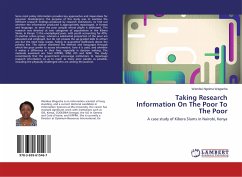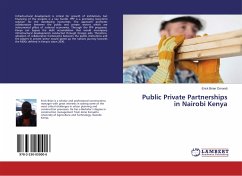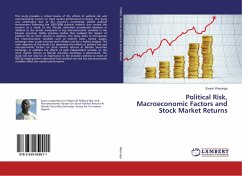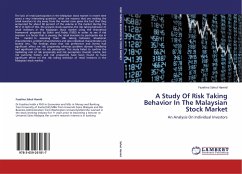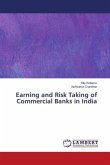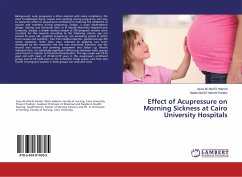Since most policy information provides key approaches and imperatives for pro-poor development, the purpose of this study was to examine the different research findings produced by research institutions, to find out whether the information produced is appropriately repackaged, in format and language, to serve the poor people whose plight is addressed. The research was directed at two categories of populations in the Kibera Slums, in Kenya: 1) the unemployed poor, with youth accounting for 45%; 2) another urban group, wherein a substantial proportion of the poor are educated and employed, but do not possess the up-graded skills to attract any but the most basic wages, failing to guarantee livelihoods above the poverty line. The author examined the method and languages through which the poor prefer to access information, how it is used, and whether it makes a difference in their lives, especially in decision making. The materials examined are from KIPPRA, IPAR, IDS and AERC. The study recommends that the government encourage institutions to repackage research information so as to reach as many poor people as possible, including the physically challenged who are among the poorest.

